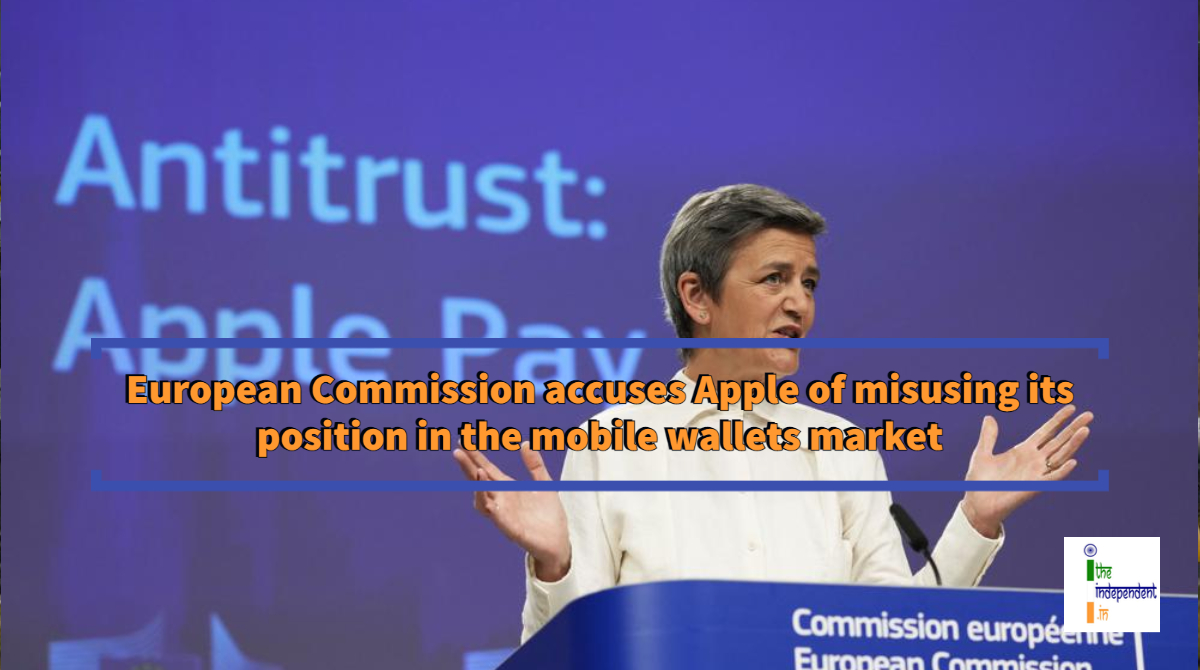
The European Commission said that Apple restricted access to the technology underpinning contactless payments on its mobile devices, to the benefit of its own solution-Apple Pay
The European Commission has accused the United States (U.S.) based Apple of abusing its dominant position for mobile wallets on iOS devices by limiting access to Near-Field Communication (NFC) or ‘tap and go’, a standard technology used for contactless payments with mobile devices in stores.
The European Commission said that Apple prevents mobile wallets app developers, from accessing the necessary hardware and software (‘NFC input’) on its devices, to the benefit of its own solution – Apple Pay.
Apple Pay is Apple’s own mobile wallet solution on iPhones and iPads, for mobile payments in physical stores and online. Apple controls every aspect of the user experience in this ecosystem, including mobile wallet developers’ access to it.
Apple has denied the charges and has said it will engage with the European Commission. If found guilty, Apple will have to pay fine upto 10% of its global turnover of U.S. $ 36.6 billion (£ 29.2 billion) based on its revenue last year.
Taking it to twitter, European Commission tweeted,
We have informed Apple of our preliminary view that it abused its dominant position in markets for mobile wallets on iOS devices.
— European Commission
Our preliminarily findings show that Apple may have restricted competition, to the benefit of its solution Apple Pay.https://t.co/nyBx57JNIU
(@EU_Commission) May 2, 2022
The Executive Vice-President of the European Commission for a Europe fit for the Digital Age – Margrethe Vestager tweeted,
Today we have send @Apple a statement of objections. We are concerned that @Apple may have illegally distorted competition in the market for mobile wallets on @Apple devices. Now @Apple can answer our concerns.
— Margrethe Vestager (@vestager) May 2, 2022
The European Commission preliminarily considers that Apple enjoys significant market power in the market for smart mobile devices and a dominant position on mobile wallet markets. Precisely, Apple Pay is the only mobile wallet solution that may access the necessary NFC input on iOS. Apple does not make it available to third-party app developers of mobile wallets. This has an exclusionary effect on competitors and leads to less innovation and less choice for consumers for mobile wallets on iPhones. If confirmed, this conduct would infringe Article 102 of the Treaty on the Functioning of the European Union (‘TFEU’) that prohibits the abuse of a dominant market position.
Article 102 of the TFEU prohibits the abuse of a dominant position. The implementation of these provisions is defined in the Antitrust Regulation (Council Regulation No 1/2003), which can also be applied by the national competition authorities.
The European Commission has sent a Statement of Objections to Apple. It is a part of investigation. The European Commission informs the parties concerned in writing of the objections raised against them. The addressees can examine the documents and reply in writing and request an oral hearing to present their comments. Sending a Statement of Objections and opening of a formal antitrust investigation does not prejudge the outcome of the investigations.







